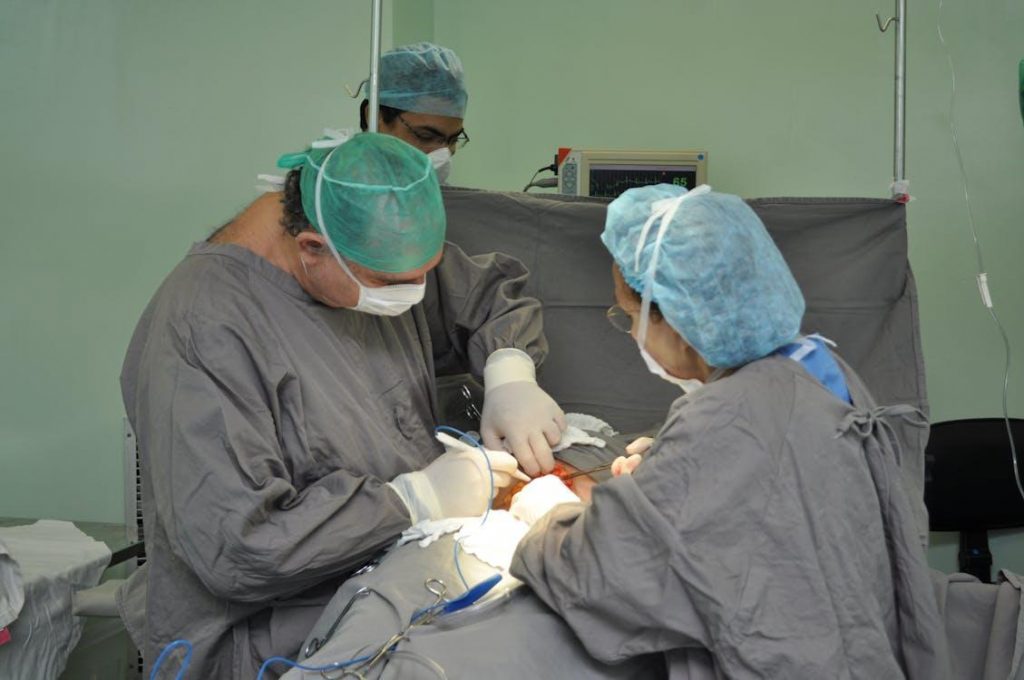A Qualified Medical Evaluator, or QME, as it’s commonly known, plays an important gatekeeping role in California’s workers’ compensation process. However, some misguided notions about the finality of their determinations seem to exist. As an orthopaedic surgeon practicing throughout California, it’s crucial to understand the QME designation and your options.
To start, let’s clarify exactly what a QME is. A QME is a licensed medical doctor who has been approved by the Division of Workers’ Compensation to give an expert opinion in disputes over industrial injuries or illnesses. Their independent evaluations aim to assist in the timely and fair resolution of claims. The attorneys also play a significant role in this process by advising injured workers of their rights, selecting QMEs, addressing disputes, and providing information about the QME process.
Is a QME a Final?
However, the common assumption that everything hinges on a QME’s report fails to tell the full story. Spectrum Medical Evaluators, experts in optimizing QME practices, affirms that experienced orthopaedists are well aware it’s unwise to view a QME’s rating as definitive in all instances.
In this detailed overview, we’ll thoroughly unpack the realities behind that “QME final” fallacy. The takeaway: With diligent case preparation and the right advisor, appealing QME opinions is definitely feasible. Additionally, a supplemental report can be requested if there is a disagreement with the initial QME report. Let’s start our exploration.
Managing Expectations for Injured Workers During the QME Process

Maintaining realistic expectations is key to optimizing orthopaedic practice results for injured workers during the QME process. QME outcomes can financially impact caseloads and overhead costs, so it makes sense to partner with an advisor with deep QME experience.
Spectrum Medical Evaluators delivers tailored strategic guidance bolstered by location analytics, ensuring surgeons operate from an informed position. Issues get addressed proactively rather than reactively. Support also covers specialized QME training and compliance – removing those administrative burdens.
Not All QME Opinions Are Set in Stone
While a QME’s rating carries substantial weight, it’s not definitively final in all cases. Spectrum’s experts emphasize that employers, applicants, or the insurance company can formally dispute a QME’s findings through the Workers’ Compensation Appeals Board if sufficient contrary evidence exists.
The Board will examine all medical documentation and legal arguments to determine if the QME’s opinion warrants being overturned. Outcome examples show this outcome is feasible, not just theoretical. Appreciating when reconsideration may be prudent avoids unnecessary headaches down the line.
The Nitty Gritty of the QME Process
Knowing the inner workings is key to fully grasping the power and limitations of QME evaluations. A standard QME appointment typically involves the following steps in a qualified medical evaluation:
- Medical records review by the evaluating QME physician
- In-person patient interview and examination
- Determining applicable injury issues such as nature/extent of disability
- Finalizing the QME report detailing diagnosis, analyses, and conclusions
A QME panel is a randomly generated list of three Qualified Medical Evaluators provided by the Department of Workers’ Compensation Medical Unit. The requester, be it the injured worker, attorney, or insurance company’s claims administrator, has a specific timeframe to select a QME from the panel and set an appointment for the QME to examine the injured party and prepare a report on their condition and the issues involved.
It’s critical to remember that the QME acts as an independent consultant. Their medical-legal opinion isn’t binding in the way a court’s judgment would be. Acceptance is voluntary unless a comprehensive hearing overturns their findings.
Here are some more specifics on the components typically included in a QME medical examination:
Patient Interview: The QME will conduct a thorough interview to obtain the patient’s history of present illness and past medical/surgical history. This will establish the mechanism of injury and the chronology of symptoms.
Physical Examination: A standard physical exam evaluates areas of pain, tenderness, atrophy, range of motion, and motor/sensory function. This helps identify the nature and extent of any permanent impairment.
Diagnostic Testing Review: The QME analyzes all relevant prior imaging, labwork, operative reports, and other test results. This confirms the correlation between reported symptoms and documented medical pathology.
Functional Assessment: Objective metrics like lift/carrying abilities, repetitive task tolerance, and activities of daily living assessments give insight into work/activity restrictions.
Apportionment Determination: The QME distinguishes pre-existing, non-industrial, and age-related components versus pathology directly due to the reported industrial incident.
Permanent & Stationary Evaluation: It’s determined whether the injury has reached Maximum Medical Improvement or if further treatment is necessary before permanent work/activity restrictions are issued.
Impairment/Disability Ratings: Using the American Medical Association Guides and other resources, specific numeric scores reflect loss of bodily function compared to the baseline status prior to the injury event.
Is a QME Report Truly Final?

While a QME appointment represents a key juncture, their opinion doesn’t necessarily spell absolute doom or vindication for orthopaedic practices. Spectrum shares insights on realistic scenarios where appealing QME determinations prove fruitful:
- New evidence emerges, altering the case’s medical picture
- Procedural irregularities occurred during the QME evaluation
- The report contained factual errors or inconsistencies
- Relevant treatment records weren’t available for review
- The QME failed to conduct an adequate medical examination
A QME also plays a crucial role in evaluating permanent disability, which can significantly impact the outcome of industrial injury cases.
Moreover, overturning a QME isn’t unheard of. Extensive documentation strengthening alternate opinions and legal strategies can yield victories on appeal. The key takeaway is to consider QME ratings immutable when exploring options.
Practice Realities and the Power of Preparedness in the Workers’ Compensation System
Of course, workers’ compensation issues extend far beyond what happens in the examining room. For orthopaedic practices, how individual workers’ compensation cases progress influences everything from overhead to staffing needs. Coping with unexpected QME outcomes can spell chaos without foresight.
That’s why partnering with an advisor like Spectrum Medical Evaluators proves invaluable. By tapping their data-backed strategic guidance focused on maximizing QME referrals and volume, Los Angeles surgeons can better manage the workflow effects of different rulings. Issues are also addressed through open communication rather than expensive and time-consuming disputes.
In addition, Spectrum’s support network removes administrative burdens that distract from patient care. Specialized training, records management, report preparation, and compliance oversight counter costly penalties and ensure best practices. These stress-relieving services give orthopaedists the bandwidth to flourish professionally.
Spectrum’s Holistic Approach:
- Spectrum’s experts analyze each practice’s needs through private consultations. They identify strengths to build on and challenges requiring support.
- Proprietary technologies integrate schedules across sites, digitize records in a central database, and facilitate billing/collections.
- Multi-tiered training options ensure surgeons excel in report methodology, documentation, and presentation skills.
- Real-time compliance guidance through dedicated specialists prevents rating appeals and disciplinary actions that damage reputation.
- The full-spectrum solution lets surgeons direct maximum focus to patients while leveraging Spectrum’s expertise in handling diverse operational facets.
Leveling Up Your QME Experience in LA
For surgeons at any career stage, optimizing QME participation strengthens individual practices and benefits injury victims. Leveraging proven tactics can help squeeze more value from every evaluation. Consider these pointers:
- Carefully choose office locations through Spectrum’s data-backed site selection system for high visibility.
- Keep schedules filled through their QME appointment coordination team
- Master reports the first time by consulting Spectrum’s rehabilitation experts
- Avoid on-site delays with Spectrum’s assistant to manage paperwork and tardy parties
- Refine technique at Spectrum’s hands-on qualification courses geared toward orthopaedics
The primary treating physician (PTP) plays a crucial role in the QME process by providing initial treatment and potentially interacting with the QME in case of disagreements.
Pairing with an accomplished advisor like Spectrum means never having to navigate the nuanced QME path alone. Their multi-faceted approach uplifts practices so Los Angeles patients receive unmatched orthopaedic care.
Takeaways and Conclusion
In workers’ comp, a QME designation carries substantial influence, yet their opinions represent expert consultation, not final judgment. Seasoned orthopaedists realize that appealing to questionable QME findings or re-evaluating amenable cases helps avoid unnecessary barriers to recovery.
As we’ve explored, while QME evaluations carry substantial weight in California’s workers’ compensation system, orthopaedic surgeons must understand both the opportunities and limitations of the process. An agreed medical evaluator (AME), on the other hand, is a physician agreed upon by both the injured worker and the employer/insurance company and is used when the injured worker is represented by an attorney.
Seasoned practices recognize the value of carefully navigating determinations while exploring all potential avenues for meaningful appeal when patient circumstances warrant a second examination.
Partnering with an advisor like Spectrum Medical Evaluators provides the insights and integrated support platforms necessary to systematically enhance every facet of your QME involvement.
Whether optimizing location selection, streamlining administrative responsibilities, or gaining specialized training to sharpen evaluation skills, leveraging Spectrum’s expertise has positioned over 200 surgeons for enhanced success annually.
Partner With The Leading QME Provider
If you seek a strategic advocate invested in empowering your orthopaedic practice to reach its full QME potential, consider connecting with Spectrum’s consulting specialists. Their complementary needs analysis helps tailor personalized roadmaps for maximizing referrals in your service area through every stage of a physician’s career.
Working alongside their guidance removes unpredictable variables from the equation, allowing you to focus fully on the patients who need your care.
Contact Spectrum Medical Evaluators today to schedule an obligation-free consultation. Discover how their integrated practice management solutions could elevate your orthopaedic work while strengthening professional fulfillment.













